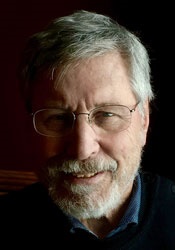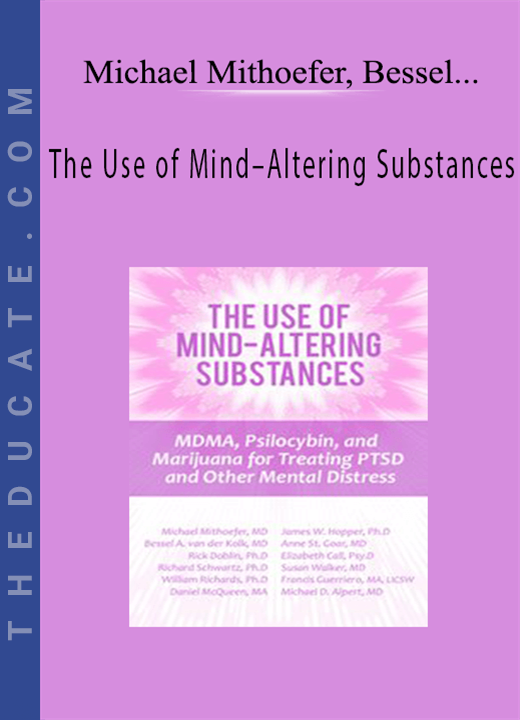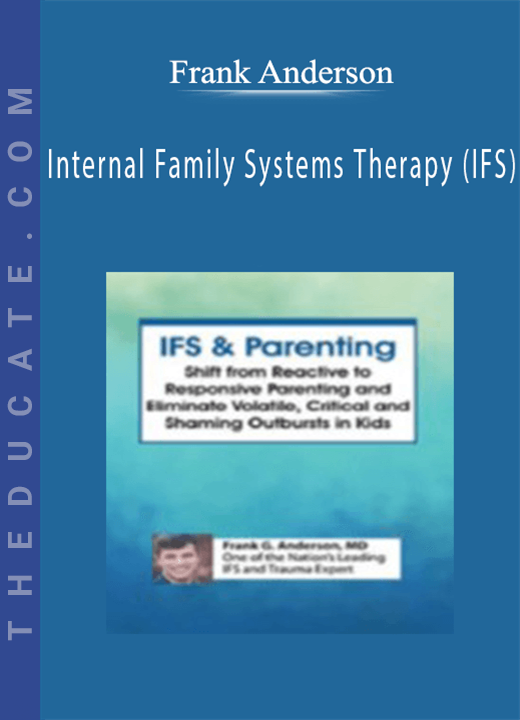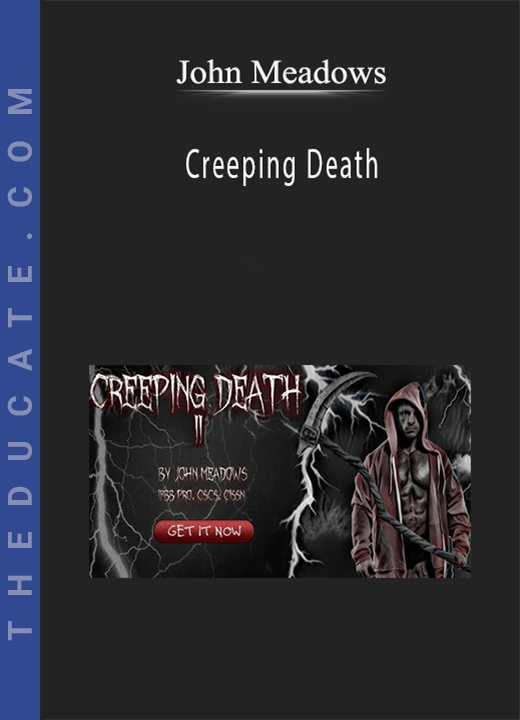Description
-

Michael Mithoefer, Bessel van der Kolk…. – The Use of Mind-Altering Substances
- Faculty:
- Michael Mithoefer | Bessel van der Kolk | Richard C. Schwartz | William Richards | Daniel McQueen | James W. Hopper | Anne St. Goar | Elizabeth Call | ….
- Duration:
- 6 Hours 28 Minutes
- Format:
- Audio and Video
- Copyright:
- May 29, 2019
Description
For the first time in over four decades, researchers are returning to examining the therapeutic benefits of mind altering substances, including MDMA (ecstasy), psilocybin (mushrooms), marijuana and LSD.
In the 1970s the study of all psychedelics was criminalized in the US, despite emerging evidence of their medical value. Over the past decade, the Multidisciplinary Association for Psychedelic Research (MAPS) has helped to revive psychedelic research, sponsoring studies across the United States and around the world, including MDMA-assisted therapy for PTSD, and end-of-life anxiety. The results have been very positive, lasting over 72 months of follow-up, with few adverse effects.
Psychedelics may promote a deepening and acceleration of the psychotherapeutic process. During therapy, people often are able to access and find peace with disavowed, “exiled” parts of themselves.
In this workshop recording the founder of MAPS will describe the evolution of psychedelic therapy, the principal investigator of the Phase I and II level trials will discuss outcomes and processes, the PI of the Hopkins psilocybin study terminally ill patients and a marijuana researcher the promises and pitfalls for that substance. The Boston MDMA study team will discuss clinical experiences and applications.
In appropriate therapeutic contexts, psychedelics may prove to be more effective than most conventional treatments, as well as safer and more cost-effective.
PLEASE NOTE: This is the same content from the 30th Annual International Trauma Conference, you cannot receive self-study credit for this program if you have already attended the live workshops.
Handouts
| Manual – The Use of Mind-Altering Substances (135.8 MB) | 151 Pages | Available after Purchase |
Outline
Introduction
MDMA
- History of MDMA
- Pharmacology of MDMA
- Controlled Clinical Trials since Scheduling
- Therapeutic Method Used in Clinical Trials
Psilocybin
- Languages and Cognitive Frameworks for Discussing Psychedelics
- History of Psilocybin
- Recent Clinical Research with Psilocybin
- Therapeutic Method Used in Clinical Trials
Ketamine
- General Practices of Ketamine Assisted Psychotherapy
- Recent Clinical Research with Ketamine
- History of Ketamine
- The Psychedelic Toolbox
Cannabis
- Cannabis Overview
- Current Cannabis Research
- Cannabis Assisted Psychedelic Therapy
- Case Study and Conclusion
- Need for Further Research
Discussion on the Integration of Psychedelic-Assisted Therapy
Q&A Panel with Presenters
Q&A Panel with MAPS MDMA Therapy Team
Faculty
Michael Mithoefer, MD Related seminars and products: 2
Michael Mithoefer, MD, clinical assistant professor of psychiatry at the Medical University of South Carolina. In 2009, he completed & published the first FDA approved clinical trial of MDMA assisted psychotherapy for treatment-resistant PTSD, followed by completion of a Phase II trial. He is overseeing a multisite Phase III study of MDMA-assisted psychotherapy in 13 sites around the US (including the Trauma Research Foundation), and another MDMA-assisted psychotherapy multisite study in Europe and Israel.
Speaker Disclosures:
Financial: Michael Mithoefer receives a salary and grants from MAPS Public Benefit Corp and is a clinical assistant professor at the Medical University of South Carolina.
Non-financial: Michael Mithoefer is a member of the non-profit MAPS.

Bessel van der Kolk, M.D. Related seminars and products: 58
Bessel A. van der Kolk, M.D., is a clinician, researcher and teacher in the area of post-traumatic stress. His work integrates developmental, neurobiological, psychodynamic and interpersonal aspects of the impact of trauma and its treatment.
Dr. van der Kolk and his various collaborators have published extensively on the impact of trauma on development, such as dissociative problems, borderline personality and self-mutilation, cognitive development, memory, and the psychobiology of trauma. He has published over 150 peer reviewed scientific articles on such diverse topics as neuroimaging, self-injury, memory, neurofeedback, Developmental Trauma, yoga, theater, and EMDR.
He is founder of the Trauma Center in Brookline, Massachusetts, and President of the Trauma Research Foundation, which promotes clinical, scientific, and educational projects.
His 2014 #1 New York Times best seller, The Body Keeps the Score: Brain, Mind, and Body in the Treatment of Trauma, transforms our understanding of traumatic stress, revealing how it literally rearranges the brain’s wiring – specifically areas dedicated to pleasure, engagement, control, and trust. He shows how these areas can be reactivated through innovative treatments including neurofeedback, somatically based therapies, EMDR, psychodrama, play, yoga, and other therapies.
Dr. van der Kolk is the past president of the International Society for Traumatic Stress Studies, and professor of psychiatry at Boston University Medical School. He regularly teaches at conferences, universities, and hospitals around the world.
Speaker Disclosures:
Financial: Bessel van der Kolk is a professor of psychiatry at the Boston University School of Medicine. He receives a speaking honorarium from PESI, Inc.
Non-financial: Bessel van der Kolk has no relevant non-financial relationship to disclose.

Richard C. Schwartz, Ph.D. Related seminars and products: 23
Owner
The Center for Self Leadership
Richard Schwartz, Ph.D., earned his Ph.D. in marriage and family therapy from Purdue University, after which he began a long association with the Institute for Juvenile Research at the University of Illinois at Chicago, and more recently at The Family Institute at Northwestern University, attaining the status of associate professor at both institutions. He is co-author, with Michael Nichols, of Family Therapy: Concepts and Methods, the most widely used family therapy text in the United States.
Dr. Schwartz developed Internal Family Systems in response to clients’ descriptions of experiencing various parts – many extreme – within themselves. He noticed that when these parts felt safe and had their concerns addressed, they were less disruptive and would accede to the wise leadership of what Dr. Schwartz came to call the “Self.” In developing IFS, he recognized that, as in systemic family theory, parts take on characteristic roles that help define the inner world of the clients. The coordinating Self, which embodies qualities of confidence, openness, and compassion, acts as a center around which the various parts constellate. Because IFS locates the source of healing within the client, the therapist is freed to focus on guiding the client’s access to his or her true Self and supporting the client in harnessing its wisdom. This approach makes IFS a non-pathologizing, hopeful framework within which to practice psychotherapy. It provides an alternative understanding of psychic functioning and healing that allows for innovative techniques in relieving clients symptoms and suffering.
In 2000, Richard Schwartz founded The Center for Self Leadership in Oak Park, Illinois. Dr. Schwartz is a featured speaker for many national psychotherapy organizations and a fellow of the American Association for Marriage and Family Therapy, and he serves on the editorial boards of four professional journals. He has published four books and over 50 articles about IFS. His books include Internal Family Systems Skills Training Manual (with Frank Anderson, M.D. and Martha Sweezy, Ph.D) (PESI, 2017), Internal Family Systems Therapy (Guilford Press, 1997), Introduction to the Internal Family Systems Model (Tarcher, 2001), and The Mosaic Mind (with Regina Goulding) (Trailheads, 2003), as well as Metaframeworks (with Doug Breunlin and Betty Karrer) (Jossey-Bass, 1997). Dr. Schwartz lives and practices in Brookline, MA and is on the faculty of the Department of Psychiatry, Harvard School of Medicine.
Speaker Disclosures:
Financial: Richard Schwartz is the Founder of The Center for Self Leadership. He receives a speaking honorarium from PESI, Inc.
Non-financial: Richard Schwartz is a Fellow and member of the American Association for Marital and Family Therapy.
William Richards, Ph.D. Related seminars and products: 1
William Richards, Ph.D., Psychologist, Johns Hopkins Bayview Medical Center where he is co-director of the program in psilocybin for terminally ill cancer patients. Contributor Fantastic Fungi.
Daniel McQueen, MA Related seminars and products: 1
Daniel McQueen, MA, Psychedelic therapist and executive director of Medicinal Mindfulness. Author of Cannabis-Assisted Psychedelic Therapy for Trauma Resolution.
James W. Hopper, Ph.D. Related seminars and products: 2
James W. Hopper, Ph.D., Independent consultant and instructor in psychology, Cambridge Health Alliance & Harvard Medical School. Co-editor, Mindfulness-oriented interventions for trauma: Integrating contemplative practices. The MDMA Team, Trauma Research Foundation.
Anne St. Goar, MD Related seminars and products: 1
Anne St. Goar, MD, Primary care physician at HVMA, emeritus certified psychedelic therapist; Boston MDMA Therapy team member with the Trauma Research Foundation.
Elizabeth Call, Psy.D. Related seminars and products: 1
Elizabeth Call, Psy.D., Psychologist in private practice. Therapy team member, MDMA study, the Trauma Research Foundation.
Francis Guerriero, MA, LICSW Related seminars and products: 1
Francis Guerriero, MA, LICSW, Private practice, Cambridge, MA; MDMA Therapy team member, The Trauma Research Foundation.
Michael Alpert, MD Related seminars and products: 1
Michael D. Alpert, MD, Psychiatrist, South Cove Community Health Center, Boston Harvard Medical School; MDMA Therapy team member, the Trauma Research Foundation.
Phil Wolfson, MD Related seminars and products: 1
Phil Wolfson, MD, is Principal Investigator for a Phase 2, FDA approved 18-person study of MDMA Assisted Psychotherapy for individuals with significant anxiety due to life threatening illnesses. His clinical practice with ketamine has informed his leadership role in the development of Ketamine Assisted Psychotherapy. Phil’s book The Ketamine Papers has been published by MAPS and is the seminal work in the burgeoning ketamine arena. Phil is a sixties activist, psychiatrist/psychotherapist, writer, practicing Buddhist and psychonaut who has lived in the Bay Area for 38 years. He is the author of Noe – A Father/Son Song of Love, Life, Illness and Death (2011, North Atlantic Books). In the 1980s, he participated in clinical research with MDMA (Ecstasy). He has been awarded five patents for unique herbal medicines. He is a journalist and author of numerous articles on politics, transformation, psychedelics, consciousness and spirit, and was a founding member of the Heffter Research Institute. Phil has taught in the graduate psychology programs at JFK University, CIIS and the UCSF School of Medicine Department of Psychiatry.







4 reviews for Michael Mithoefer, Bessel van der Kolk, Richard C. Schwartz, William Richards, Daniel McQueen, James W. Hopper, Anne St. Goar, Elizabeth Call, …. – The Use of Mind-Altering Substances: MDMA, Psilocybin, and Marijuana for Treating PTSD and Other Mental Distress
There are no reviews yet.